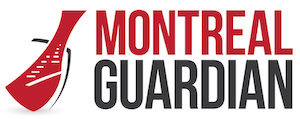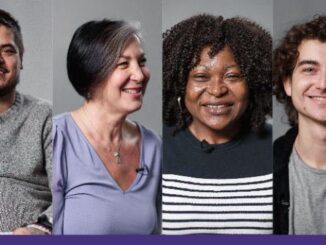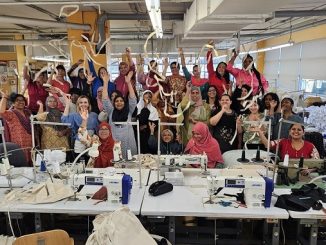Steel James MacDonald, Founder and Executive Director of Welfare Avenue, leads an inspiring mission to address poverty, food insecurity, and social isolation in Montreal and Toronto. Founded in 2020 during the early days of the pandemic, Welfare Avenue provides free, home-cooked meals, distributes essential items, and fosters community connection through initiatives like inclusive events and university volunteer programs.
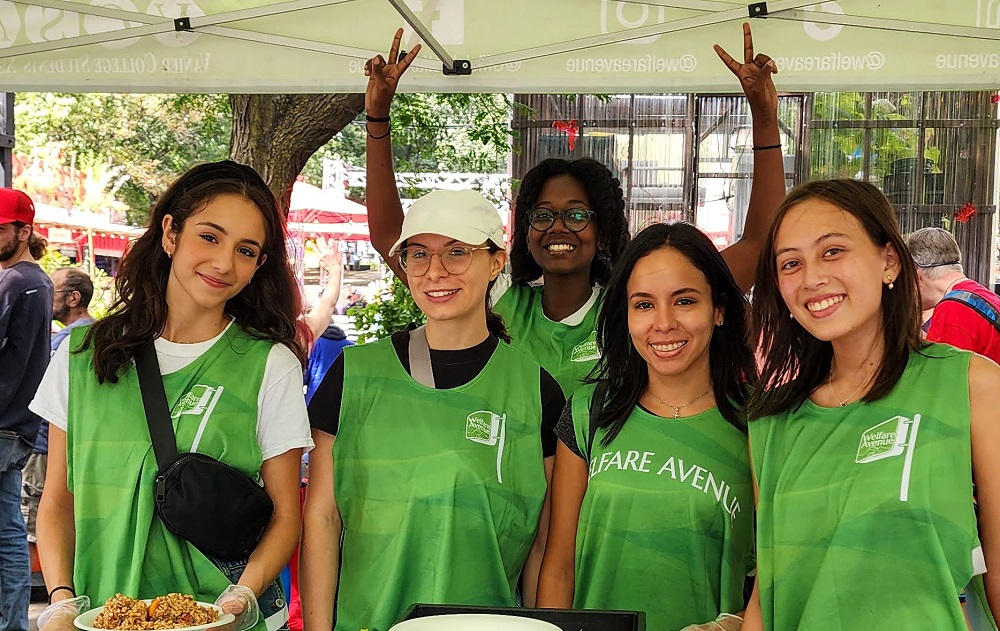
Describe your charity/non-profit/volunteer work in a few sentences.
Welfare Avenue is a charitable organization committed to improving the lives of low-income individuals and communities in the Greater Montreal area and recently expanding to the Toronto area. We address food insecurity by providing free, healthy home-cooked meals, relieve poverty by distributing essential items like clothing and hygiene products, and foster community connections through inclusive events such as soccer tournaments organized with CSSA. Additionally, we collaborate with local organizations to provide access to vital resources like mental health support, employment opportunities, and housing services. Our activities emphasize partnership, community engagement, and empowering volunteers to create a sustainable positive impact.
We are deeply committed to engaging students in our mission by fostering awareness and encouraging volunteerism. To achieve this, we have established chapters in universities and colleges, providing students with opportunities to participate in meaningful initiatives, develop leadership skills, and contribute to their communities. Through workshops, events, and volunteer programs, we inspire students to take an active role in addressing social challenges and building a more inclusive society.
What problem does it aim to solve?
Welfare Avenue aims to address the interconnected challenges of poverty, food insecurity, social isolation, and limited access to essential resources faced by low-income individuals and marginalized communities. By providing free, healthy meals, distributing essential items like clothing and hygiene products, and fostering inclusive community events, we alleviate immediate needs and create opportunities for long-term support and empowerment. Additionally, we partner with organizations to connect individuals with critical resources such as mental health services, employment opportunities, and housing solutions, while also mobilizing youth and students to become actively engaged in creating sustainable positive change. Our ultimate goal is to reduce the barriers that perpetuate poverty and enhance the inclusion and quality of life for underserved populations.
When did you start/join it? / What was the situation like when you started?
I started Welfare Avenue in 2020 during the early days of the COVID-19 pandemic. Like so many others, I was grappling with the challenges of social isolation and the uncertainty of those times. Daily walks became my way of staying grounded, but as I wandered through the streets, I couldn’t help but notice the growing number of people experiencing homelessness. One encounter in particular left a profound impact on me—buying a bag of groceries for an unhoused man and hearing his story. That simple exchange changed everything.
Not only did my small gesture brighten his day, but his gratitude and openness brought light to mine. In a time when I felt disconnected from the world, our conversation reawakened a sense of connection and purpose. It reminded me of the power of human interaction and how, in moments of hardship, kindness can forge meaningful bonds. This realization—that our connection was mutually uplifting—became the spark that inspired me to do more.
Additionally, that moment opened my eyes to the complex factors driving homelessness, many of which were made worse by the pandemic. It inspired me to take action. I began by creating an awareness video to shed light on what I was witnessing, and the overwhelming response from the community showed me that I wasn’t alone in wanting to help in time and donations.
Using the extra time I had due to losing my job and moving to online courses, I started organizing weekly food servings from my car and shared on social media the direct impact of those who volunteered and donated. With the support of friends and colleagues who shared my vision, an entrepreneurship class that helped me write my business plan, I was able to build a team of dedicated volunteers and an organization. Together, we worked to provide food, essentials, and hope to those who needed it most. This is how Welfare Avenue was born, and it has grown from those humble beginnings into a charitable organization committed to making a lasting impact.
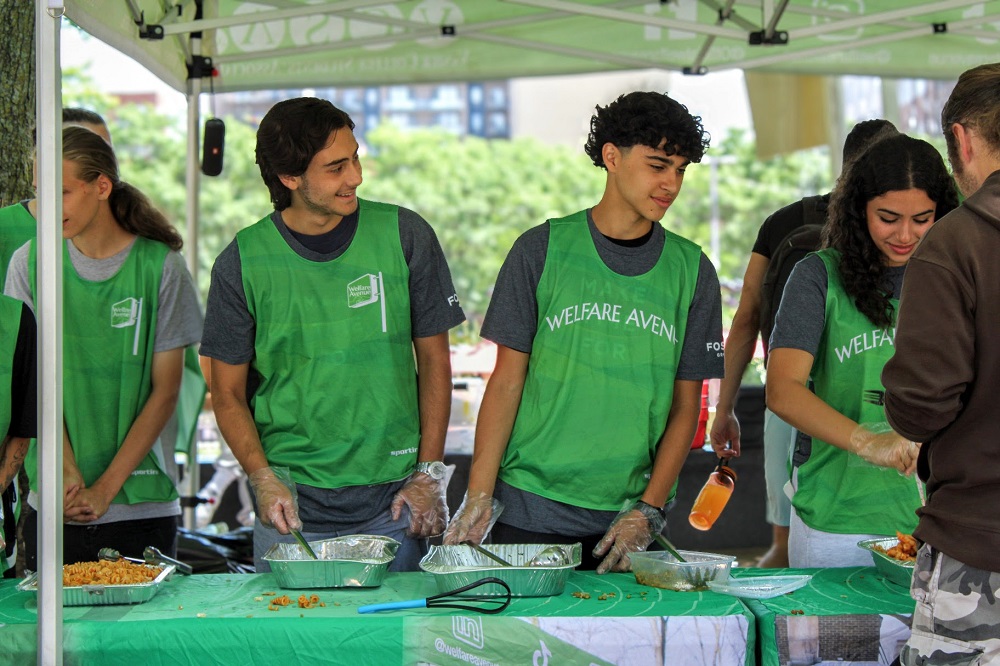
How has it changed since? / What more needs to be done?
Since Welfare Avenue’s inception during the COVID-19 pandemic in 2020, the lives of low-income and unhoused individuals in Montreal have been profoundly impacted, emphasizing the need for Welfare Avenue’s mission to address poverty, food insecurity, and social isolation. The pandemic caused job losses, increased home abuse, and housing instability, leading to increased homelessness. Public health measures further strained shelter capacity, leaving many without access to vital support. We made a video back then to highlight their burdens.
From 2021 to 2022, the challenges continued. Rising rents and economic pressures further marginalized low-income individuals, highlighting the inadequacy of Montreal’s housing infrastructure to meet demand. Food insecurity also surged as households struggled to afford basic necessities, and social isolation exacerbated mental health challenges among vulnerable populations, limiting access to essential services. During this period, Welfare Avenue faced financial challenges due to the heightened demand for their services, all while navigating a hike in costs, particularly food expenses.
By 2023-2024, the effects of the pandemic continued to ripple through these communities. Food insecurity reached record highs, fueled by inflation and economic instability. Affordable housing remains a critical issue, with waitlists for social housing growing longer.
What needs to be done: Partnerships between grassroots organizations and public agencies have become crucial in addressing these ongoing challenges. We need to work together and not in silos as we are addressing a multi-faceted issue. Also, while we address the problems of lack of basic necessities it’s important to implement more proactive measures to prevent food insecurity, unstable housing, mental health issues, etc.
How can our readers help?
There are many ways to support us. The funniest way is to support yourself with your time by signing up here to volunteer! All ages are welcome but you’ll have to check regularly as spots are often filled up quickly. You can also follow us on our socials (see below) to be the first to know when new dates are up on our website. Secondly, would be by making a monetary donation here or an item donation by emailing us here.
Where can we follow you?
Website | Instagram | Facebook | TikTok | LinkedIn | Youtube
PAY IT FORWARD: What is an awesome local charity that you love?
